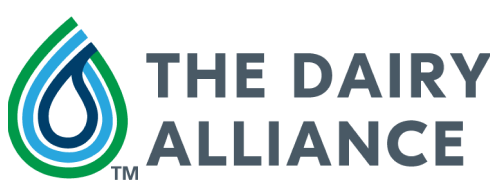Organic Milk vs. Regular Milk: Conventional, Organic, or Grass-Fed Milk?
There are plenty of confusing labels out there, but what do each of them mean? What exactly are the differences between organic milk vs. regular milk? What is considered “regular”? Read on to discover what those milk jugs mean when they have a label like “organic.”
Organic Milk vs. Regular Milk
Items labeled “organic” must follow specific on-farm practices. All milk produced in the United States follows the same federal standards for quality and safe production. Milk labeled organic must follow the below standards:
Cows are only given feed grown without pesticides or commercial fertilizers.
Cows have periodic access to pasture.
Cows are not treated with supplemental hormones.
Cows have not been given certain medications to treat illness.
If your organic milk seems to last longer, it’s because of the chosen pasteurization process. Organic milk is often pasteurized using ultra-high temperature (UHT) processing, in which the milk is heated to 280˚F for 2-4 seconds. With fewer organic dairy farms found across the country, organic milk traveling further needs a longer shelf life. Conventional milk is typically pasteurized using the standard method in which the milk is heated to roughly 160˚F for at least 15 seconds, but you can find conventional milk pasteurized with the UHT process.
All dairy farmers follow high standards to ensure that their cows and land are well cared for.
Organic and regular milk are equally nutritious and wholesome, offering the same amount of thirteen essential nutrients. Even better, milk’s natural electrolytes, carbohydrates, and high-quality protein make it more effective at improving hydration status and keeping you hydrated longer than water. And grass-fed milk is no different.
While they may be used interchangeably, it is important to note that grass-fed and organic labels do not always mean the same thing. There is not one standard grass-fed label. If the milk jug has a grass-fed label on it, it generally means the cows were fed a grass and forage-based diet. (Farmers following organic production practices may provide their cows with feed in addition to grass and pasture.)
All milk, whether it is organic, grass-fed, or conventional, contains the same 13 essential nutrients that promote good health and hydration. Dairy farmers are dedicated to caring for their cows and producing a high-quality product that everyone can enjoy. Next time you are at the grocery store, choose with confidence knowing that the real milk you drink is nutritious, safe, and wholesome!




